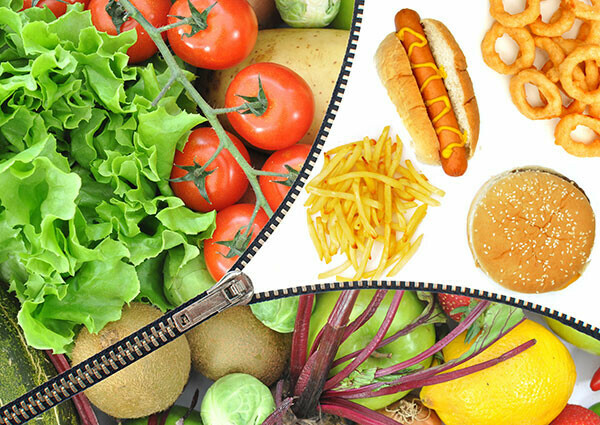I’m going to kick things off by diving into what’s going on behind the scenes of a weight loss plateau. So you’ve been losing weight, and things have been going great, but suddenly, everything comes to a halt. You’re not alone in this, and there’s a scientific reason behind it. The human body is incredibly adept at adapting to change, and part of that adaptation involves reaching a state known as homeostasis.
This isn’t just about your body getting used to the changes; it’s also about the metabolic adjustments that occur. As you lose weight, your body requires fewer calories to function because there’s less of you to keep energized. This decrease in metabolic rate is a critical player in why your weight loss might stall. Initially, when you lose a significant amount of weight, your body’s energy demands decrease, making it harder to lose more weight without making further changes to your diet or exercise routine.
Beyond the physical adjustments, there’s also the psychological aspect. Facing a plateau can be mentally challenging, and how you deal with this roadblock is crucial for continued success. Your mind needs to adapt just as much as your body does during this journey. It’s easy to feel discouraged or lose sight of how far you’ve come, but remember, overcoming a plateau is just another phase in your weight loss story.
Reassess and Revise Your Dietary Habits

Hitting a plateau in your weight loss journey can be disheartening, but don’t worry too much about it. I’m going to show you how to turn it around by taking a closer look at your eating patterns.
First up, honest food tracking is key. It’s surprising how the occasional nibble or extra scoop can slip under the radar. You want to ensure that every bite counts, so track diligently for a week or two. You might discover you’re consuming more calories than you realized.
Now, about the ‘calorie creep’. You can always adjust your portion sizes down the road, but what’s imperative is noticing any gradual increase in the amount of food you eat. Sometimes, what started as a half-cup serving can silently become a full cup, pushing you over your daily calorie goal.
Are your macros working for you? I’m talking about proteins, fats, and carbs. Review their balance. Too many carbs and not enough protein, for instance, can stall weight loss. Adjust them if necessary and see how your body responds.
And finally, think about the quality of your calories. High-quality, nutrient-dense whole foods can positively affect metabolism and satiety when compared to processed foods. So choose something that resonates with you nutritionally and will also be satisfying.
Enhancing Physical Activity: Beyond the Plateau
You know the drill: you’ve been religiously hitting the gym, going for your daily runs, or attending yoga classes, but suddenly, the scale won’t budge. Muscle memory is real, and your body is incredibly adaptable. When your regular workouts become a breeze, it’s a sign you need to shake things up.
Adding new forms of exercise can provide a fresh challenge. This might mean swapping your jog for a cycling session, trying out a dance class, or even joining a local sports league. Novelty can reignite your body’s weight loss engines and push past that plateau.
That’s where strength training comes in. Building muscle is a game-changer for weight loss. Muscle tissue burns more calories at rest compared to fat tissue, so the more you have, the higher your resting metabolic rate. If you haven’t lifted weights before, now might be the time to start.
Ever heard of high-intensity interval training, also known as HIIT? This is where you alternate short bursts of intense activity with periods of rest. It’s not only efficient—it usually takes less time than traditional workouts—but it’s also effective for breaking through plateaus due to its metabolic boosting effects.
I want to emphasize the importance of routine and progression. Consistency is key in any exercise regimen, but so is gradually increasing the challenge. If you lift weights, try adding more weight or doing more repetitions over time. If you’re a runner, increase your speed or distance. Small increments can lead to big results.
Now, let’s turn this focus on progression towards psychological thriving. The next section will delve into the mental and emotional aspects of overcoming weight loss plateaus and how to support yourself through this part of the journey.
Psychological Strategies and Support Networks
If you want to conquer a weight loss plateau, your mindset is just as crucial as your diet and exercise plan. Adjusting your perspective can make a world of difference. Aim for realistic goals and give yourself the grace to accept that progress is not always measured by the scale.
A strong support system can be your lifeline when motivation wanes. Surround yourself with friends, family, or a community who understand your journey and offer encouragement. Don’t underestimate the power of a workout buddy or an accountability partner in keeping you on track.
Mindfulness practices, whether it’s meditation, journaling, or simply taking a moment to breathe and reflect, can help manage stress, which is often an underrated factor in weight loss plateaus. By focusing on the present, you reduce stress and prevent emotional eating.
Finally, there’s absolutely no shame in seeking professional help. A registered dietitian or a certified personal trainer can provide personalized advice and adjustments to your plan. They bring expertise and a fresh perspective that might be just what you need to move past your plateau.
Remember that every journey has its ups and downs. Your first attempt doesn’t need to be your last. Be kind to yourself, and don’t worry too much about the number on the scale. Instead, measure success by how you feel, the healthy habits you’ve cultivated, and the small victories you achieve along the way.

